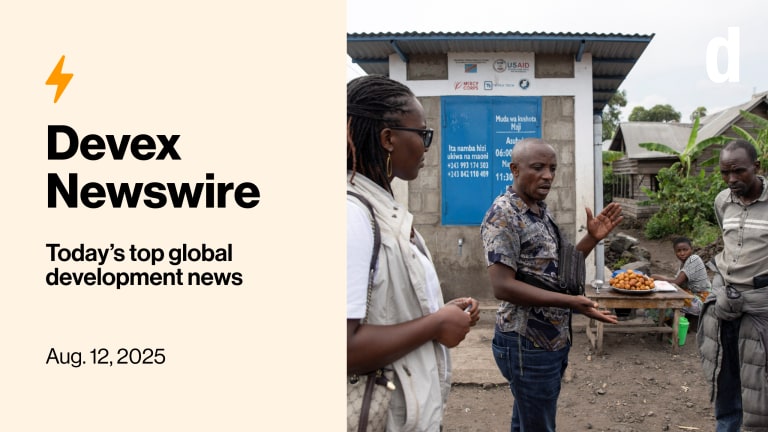
It’s been more than three years since U.S. Agency for International Development Administrator Rajiv Shah memorably told a Washington audience that the world’s biggest bilateral donor was “no longer satisfied with writing big checks to big contractors and calling it development.”
At the time, many doubted Shah’s ambitious localization agenda would ever get off the ground. There were reasons to be skeptical, including the squeeze on USAID’s operational budget and pushback from Republican lawmakers. Would the youngest administrator in USAID’s history really have the mettle to take USAID local?
Amid current speculation that Shah may soon step down, there’s little doubt now that that he meant business all along. USAID is already more than halfway toward its goal of channeling 30 percent of its funding locally by 2015 — a dramatic shift for an agency that has come to rely on U.S. implementers to carry out much of its development work around the world.
As USAID makes its push to meet and perhaps exceed its 30 percent local funding target, Devex has been breaking news and providing in-depth reporting and analysis to help our Executive Members make sense of the agency’s evolving agenda. Recently, our Washington correspondents revealed that USAID's small business partners seem to be hurt most by the agency’s drive to go local, but we’ve only scratched the surface.
Over the next few weeks, we’ll examine how USAID's localization is playing out on the ground. In the Philippines, where the USAID mission has set a more ambitious local funding target of 40 percent, we’ve been talking to NGOs and reporting on their experiences with USAID. Stay tuned for our interview with USAID Philippines’ mission director, the latest in a series of interviews with high-level USAID officials.
Our team of reporters and analysts will continue to track where USAID’s local spending is going and provide you practical business advice on how to access this funding. In our most recent Devex analysis, we ranked USAID’s largest local partners and discovered that a few are affiliated with prominent international NGOs. USAID is hardly the only donor going local, and as the European Union, Australia and the United Kingdom move in the same direction, their approaches will almost certainly be informed by USAID’s experience.
Join Devex as an Executive Member to take advantage of exclusive reporting, business analysis and more.








